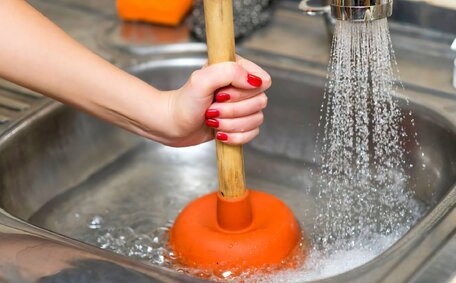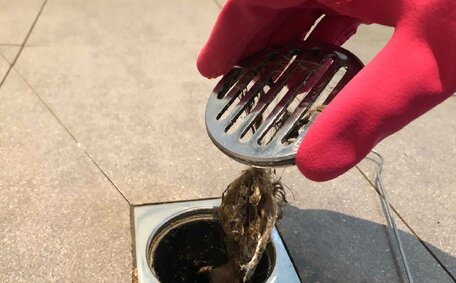Introduction: Pipe Relining in Rental Properties
Understanding tenant rights and responsibilities for sewer pipe maintenance and repairs in rental properties is crucial to navigate this often confusing aspect. Pipe relining with advanced epoxy resin technology offers a durable, watertight solution, easing maintenance burdens for property owners.
Pipe repair and relining are essential for restoring damaged pipes in both commercial and residential properties, allowing your plumbing system to operate efficiently without the need for complete pipe replacement.
Disputes between landlords and tenants over the responsibility for pipe maintenance and repairs under tenancy agreements are common. And what responsibilities do landlords and tenants share for pipe maintenance? This article will outline key considerations, such as the way rent influences maintenance costs, for pipe relining in rental properties, under guidance from the NSW Residential Tenancies Act.
We provide guidance on identifying pipe damage, assigning repair liability, understanding urgent repair timeframes and the advantages of pipe relining over traditional excavation.
Tenant Rights and Responsibilities Regarding Pipe Maintenance
Tenant Rights Regarding Pipe Maintenance
Tenants need to be aware of their rights under the Residential Tenancies Act 2010, particularly concerning water pipe maintenance and repairs:
- Determining when is the landlord responsible for blocked drains falls to the Residential Tenancies Act; your landlord must ensure the rental property is clean, in good repair, and that drains are maintained in working order throughout your tenancy.
- Landlords must address repairs for blockages due to fair wear and tear, like burst pipes in the water system over time.
- Tenants can request their landlord to promptly address blocked drains by performing urgent repairs, and the landlord is then allowed two working days to fix any implicated sewer or stormwater drains.
- Tenants can apply to the NSW Civil & Administrative Tribunal if the landlord doesn’t complete repairs within a reasonable period.
Tenant Responsibilities Regarding Pipe Maintenance
Tenants have key responsibilities to maintain their plumbing system’s integrity and ensure it functions optimally:
- You must contact your landlord or property manager to report any signs blocked or indications of leaking, damaged pipes/drains as soon as possible.
- It is important to prevent items such as food scraps, oils, or small objects from going down the drain, as these can lead to blockages.
- Unless it’s proven that the damage caused was by you, your visitors, or your pets, the landlord remains responsible for pipe repairs and maintenance.
- You, as the tenant responsible for the premises, may be held financially liable if the landlord can prove any damage was caused during your tenancy resulting from intentional acts or neglect.
The Benefits of Pipe Relining
Trenchless pipe relining, a no-dig solution to refurbish damaged sewer drains and stormwater systems, is recommended for property-wide piping networks. Pipe relining involves installing a sturdy epoxy resin lining inside compromised pipes, creating a durable new pathway for water and preventing future blockages. This is less invasive for tenants than the traditional dig and replace method of pipe replacement.
Our specialists can repair aged, broken cast iron pipes with pipe relining, often exceeding the original pipe strength. The seamless epoxy lining maintains consistent water flow in drain pipes, reducing maintenance and preventing tree root intrusion. With a life expectancy of over 50 years, pipe relining significantly reduces the need for frequent repairs.
Tenants can benefit as our qualified plumbers can perform pipe relining with minimal disruption to their home life, so don’t hesitate to call us. Access is only required at pipe entry points, circumventing the need for digging up your garden or disrupting structural components of the property, which makes the process less invasive during repairs.
Determining Fault for Pipe Damage
Identifying the responsible party for broken pipes in a rental property is complex, with several key factors to consider:
Tree Root Intrusion
Landlords must address pipe damage caused by encroaching tree roots. Tree root intrusion is a common complication in the sewer line and pvc pipe systems, especially in vintage properties, with roots infiltrating through cracks in ageing pipes.
Fair Wear and Tear
Generally, landlords bear the responsibility for repairs stemming from natural blockages or pipe deterioration over time, as these fall under fair wear and tear. Things like mineral build-up, rust and small leaks are often attributable to standard ageing of pipes.
Tenant Liability for Tenant Liability for Deliberate Damage or Misuse
Tenants may be liable for damages if they negligently cause harm to plumbing fixtures, for example, by pouring fats down the sink. Using caustic drain cleaners or unauthorised plumbing alterations was very likely to increase the risk of pipe damage, shifting repair liabilities onto you as the tenant.
Evidence is Key
Ultimately, establishing responsibility typically hinges on evidence and cause. Determining who is liable for repairs when tenant causes damage can be tough; it often requires solid evidence to figure out before a landlord can seek repair costs. When reporting urgent pipe issues, tenants should clearly outline the specific problem and its impact on their living conditions.
Consulting with experienced technicians for pipe relining services can further aid in meticulously inspecting pipe damage and pinpointing its likely cause. With the right evidence, it became evident that responsibility for rental pipe repairs can be established fairly.
The Pipe Relining Process and Tenant Impact
Pipe relining is a trenchless technique that repairs damaged pipes internally. A viscous epoxy resin coating is applied and expanded to create a strong new pipe within the old sewer infrastructure, which can seamlessly repair cracks and holes. Once set, it establishes a robust, seamless new pipe inside old one.
Pipe relining offers several benefits for tenants’ drainage systems compared to conventional pipe replacement:
- It’s minimally invasive - Particularly beneficial for commercial properties, pipe relining requires access only at targeted points, avoiding major excavation that could disrupt business activities or routines.
- Shorter disruption - Pipe relining usually takes 1-2 days compared to 1-2 weeks for pipe replacement.
- There’s no property damage as there’s no need to excavate walls or landscaping, safeguarding the rental property.
During the relining process, tenants might experience:
- Partial loss of hot water or sewerage services for a few hours at a time.
- Some noise from heavy-duty equipment, including the highpressure water jet system.
- Our team will need access to your indoor/outdoor areas to expertly manage pipe connections with great care.
By avoiding major property damage, pipe relining allows landlords tenants alike to enjoy the benefits of a completely new pipe system with minimal disruption. Any small inconveniences during the 1-2 day process are outweighed by the long term benefits of restoring pipes to better than new condition.
Resolving Disputes Between Tenants and Landlords
Resolving Pipe Disputes Through Open Communication
Clear and prompt communication is essential for effectively resolving pipe maintenance disputes between landlords and tenants. When faced with a plumbing issue, it’s essential for tenants to promptly and professionally communicate the problem to assist the landlord or property manager in resolving it effectively. Photos, videos and any supporting evidence will aid the process to comprehensively diagnose and fix your piping issues.
Likewise, landlords and property managers should act swiftly to troubleshoot any plumbing issues and ensure property occupants are kept in the loop regarding repair schedules, plans, and contractor specifics. Documenting all communication is advised, especially when trying to fix problems related to pipe maintenance.
Understanding the Dispute Resolution Process
If direct communication fails to resolve a plumbing dispute, we would suggest that third party assistance may be required under the Residential Tenancies Act 2010. The NSW Fair Trading Tenancy Complaint Resolution Service can get back to you with free advice, mediation and adjudication.
Should further intervention be needed, the NSW Civil & Administrative Tribunal hears tenancy disputes, makes binding rulings and can order compensation or termination of agreements.
Seeking Professional Plumbing Assessments
An independent plumbing inspection from a blocked drain specialist can often determine fault in pipe damage disputes. Strathfield plumbers use advanced drain camera diagnostics to ascertain issues like blockages, tree root invasion, breakages, leaks and more.
Evidence from a professional assessment may carry significant weight for tribunals in deciding tenant versus landlord liability.
Conclusion: Empowering Renters Through Education
Understanding your rights and responsibilities regarding plumbing maintenance, notably in the context of crucial pipe relining, empowers you as a tenant. This empowers you to proactively maintain your plumbing system in peak condition within your rental property when it comes to tackling maintenance issues, confidently identifying problems, and effectively navigating any disputes with property managers or owners.
The key points to remember are:
- Report any signs of leaks, blockages or pipe damage immediately
- Avoid intentionally pouring fats or harsh chemicals down drains
- Urgent repairs must be addressed by landlords within 2 days
- That’s why we advocate pipe relining, as it causes less disruption than full pipe replacement
- CCTV drain inspections help determine fault for damage
- Document all pipe-related communication and disputes
Empowered tenants who understand their rights can work positively with property managers and your local plumber to quickly resolve plumbing issues. Engaging your drain plumbers for professional assessments, as offered by Strathfield Plumbing, aids in resolving disputes when liability is uncertain.
Ultimately, through education and proactive maintenance, tenants can take control to prevent costly pipe emergencies. If plumbing advice or a comprehensive pipe relining service is needed, however, contact our team today on 1300 349 338 or email [email protected].





